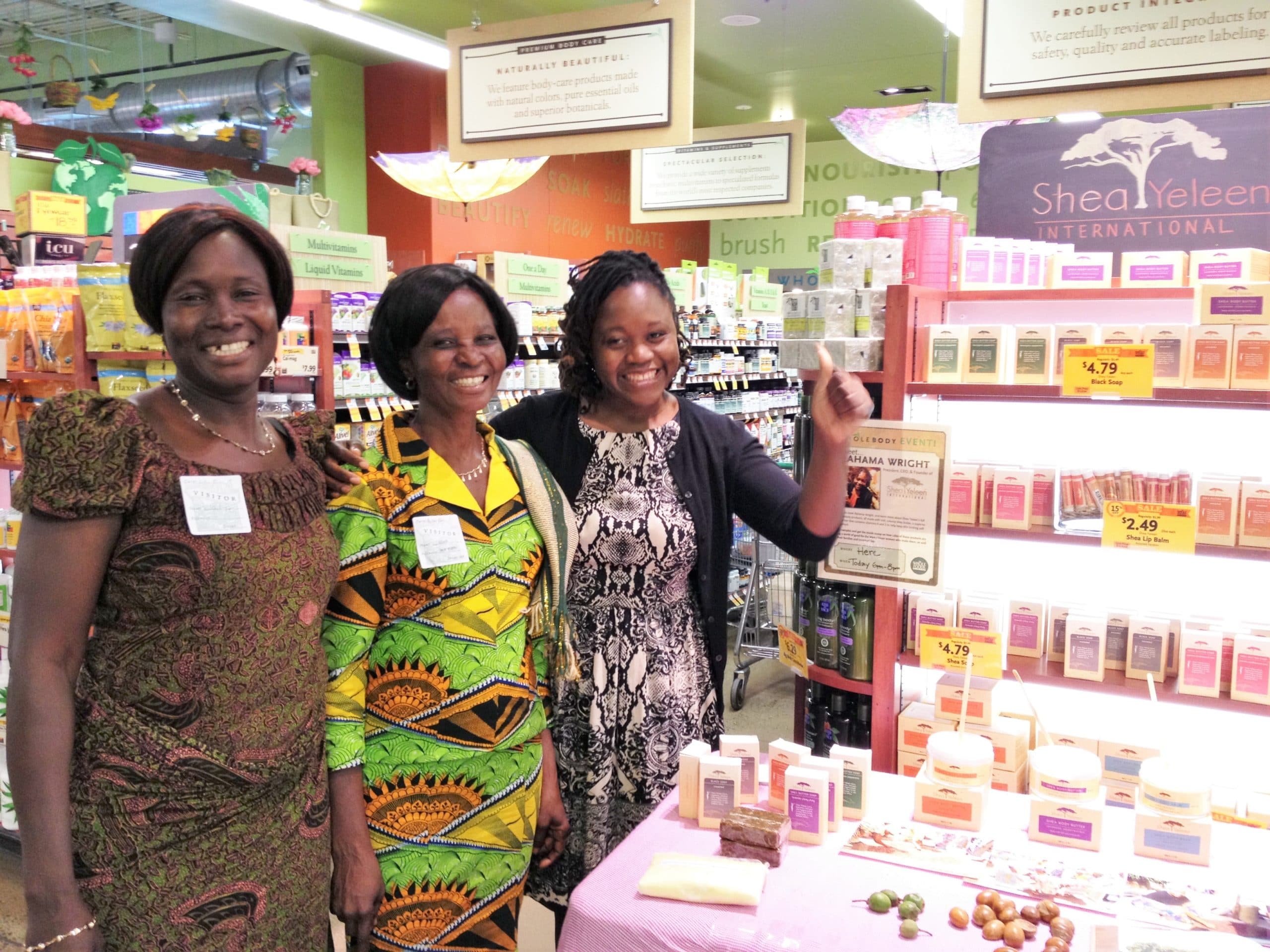Growing up in the suburbs of upstate New York, Rahama Wright’s parents made sure she and her siblings had a global view of the world. She knew her mother had met her father while he was serving in the Peace Corps in Burkina Faso, West Africa. She also knew he had a masters’ degree, and she, a sixth grade education. Her mother was smart and driven, but hadn’t been allowed to go to school. She was expected to marry young and raise a family.
Rahama’s path would be completely different and she never took that knowledge for granted. Upon graduating from college with a degree in international affairs and political science, Rahama joined the peace corps herself and was stationed at a community health center in Africa, where she began hosting cooking demonstrations for mothers who were nursing or weaning their babies. It was after one of these lessons that a woman approached her asking for substitute ingredients. She couldn’t afford the ones being used.
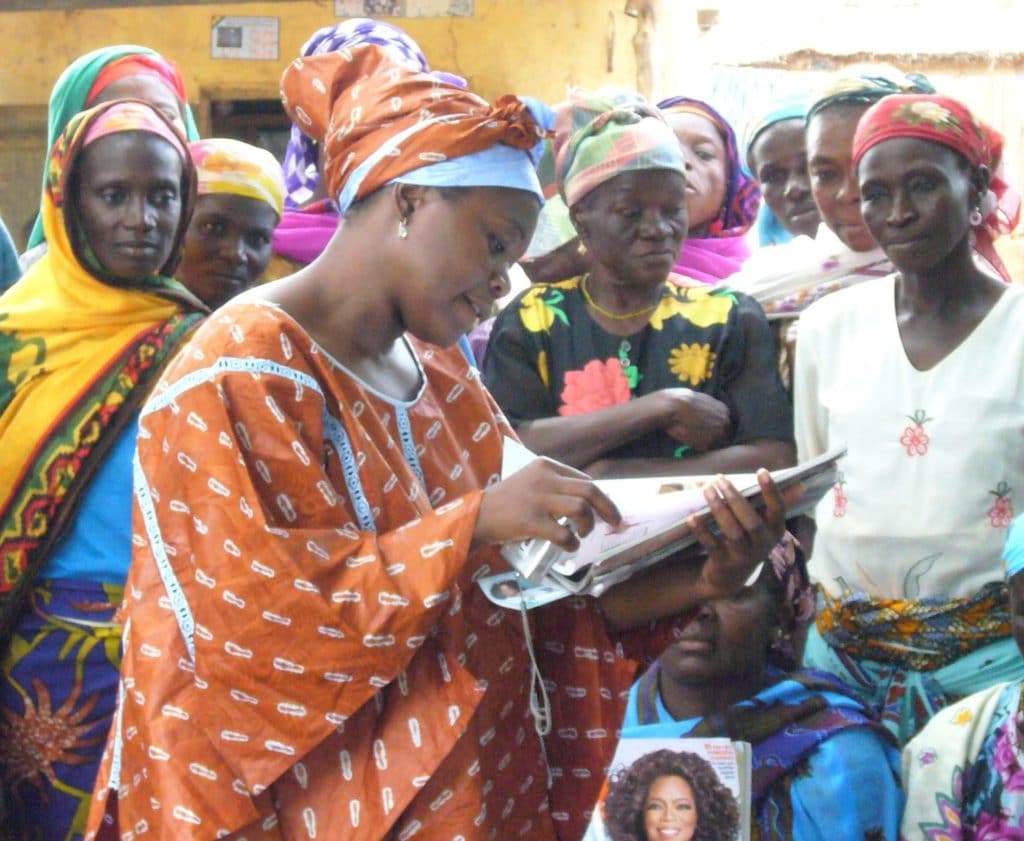
It was in that moment that Rahama decided she would figure out a way to help these women become financially able to provide for themselves and their families.
The answer seemed to lie in the Shea tree as it doesn’t grow anywhere outside the Sahel part of Africa and the shea nut it produces is a highly in demand natural resource with a wide range of applications in the cosmetics industry. Not only that, but harvesting the nut, in Africa’s male-dominated agricultural industry, is typically known as “women’s work.”
The problem was, that although 100 percent of Shea grows in Africa, less than 10 percent of Shea butter that enters the global marketplace is made there. Why? Because large, corporate manufacturers in Europe and Asia source the Shea seed directly, cutting into the supply chain.
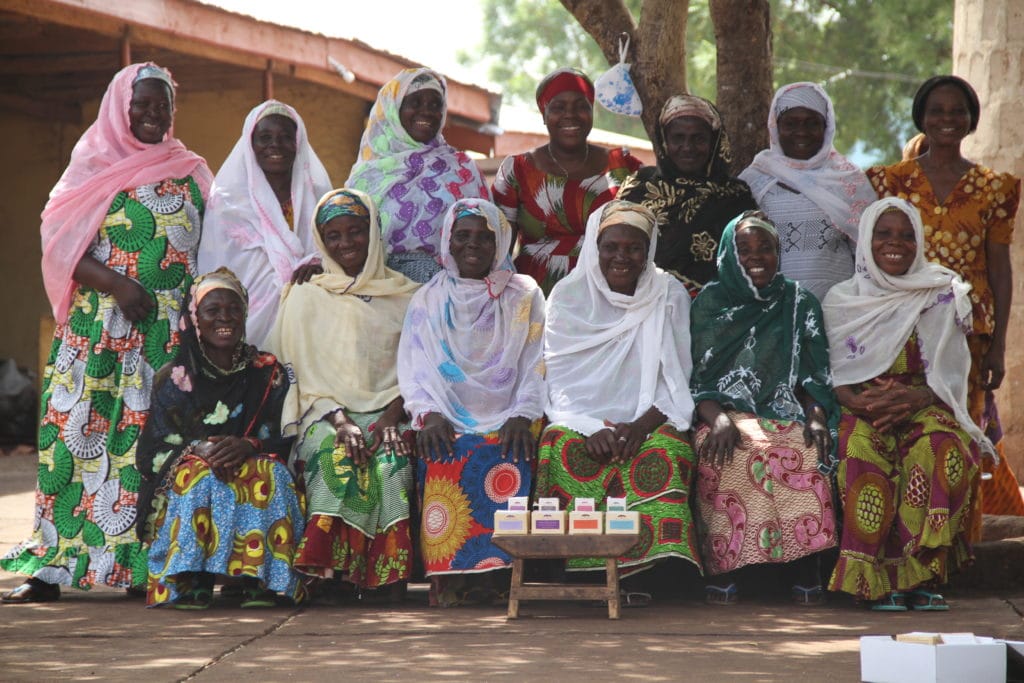
Rahama took all of this information and at age 23, with no business experience, created a reality in which these women could harvest the nut, cut out the middle man and produce Shea butter before selling it to buyers. That not only gave them a hand in the process, but allowed them to get paid for their work. She named the business Shea Yeleen, with “Yeleen’ meaning “light” and “hope” in the Bambara language.
“When these women have access to wealth of their own, they are instantly granted freedom and the ability to create more opportunities for themselves and their loved ones.”
Rahama Wright, Founder and CEO of Shea Yeleen
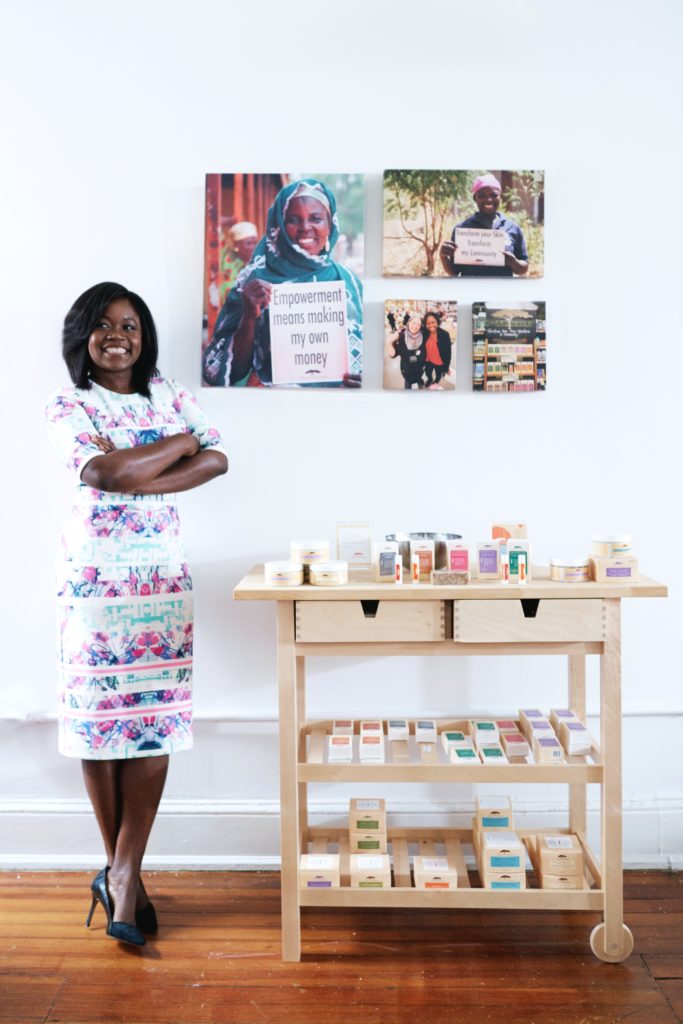
The company has worked with more than 1000 women in Northern Ghana by providing training, access to production equipment, capital, payment of five times the living wage in Africa and the resources needed to create a high-quality product that can be sold in the international marketplace.
Q&A With Rahama Wright
We spoke with Rahama about how her business – and the women she works with in Africa – have been fairing since the Pandemic hit.
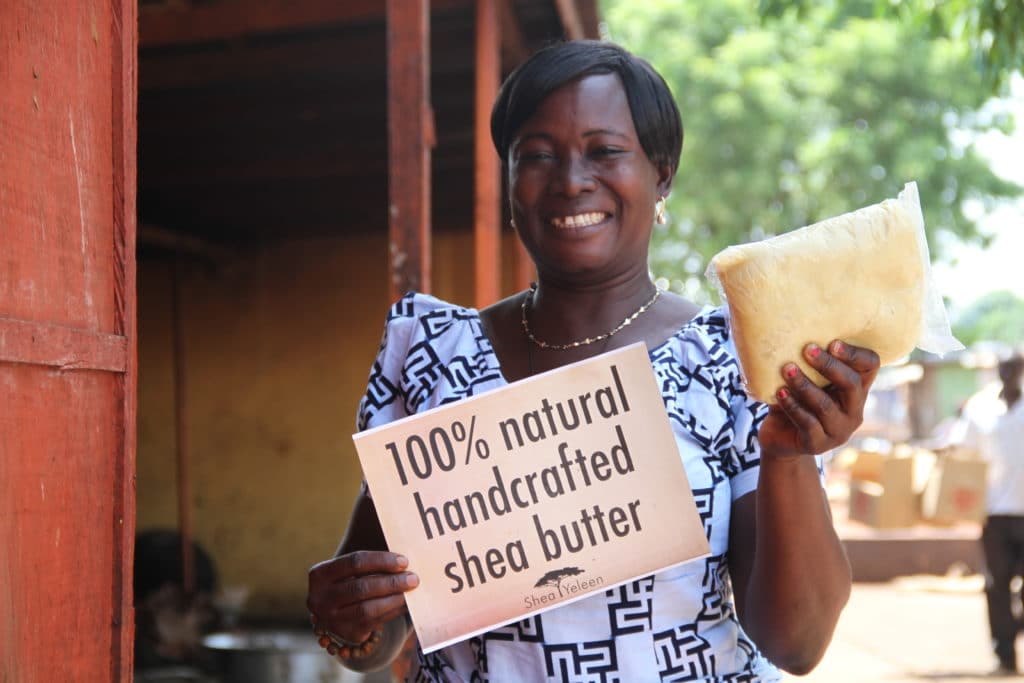
How has the Pandemic affected your business?
COVID-19 has had a tremendous impact on Shea Yeleen. I operate a retail business that sells wholesale to stores in addition to operating our own retail shop. Initially, due to mandatory shelter in place I had to close our retail locations. Our largest retail partner, MGM Resorts, temporarily closed which also reduced our revenue. Additionally, because we ethically source our shea butter from shea butter cooperatives in Ghana, we faced supply chain issues with travel bans and border closures. I spent the majority of 2020 trying to pivot and stabilize the business.
How are the women you work with in Africa fairing during this time?
No one has escaped the global negative impact of COVID-19 and the women we partner with are no different. Collectively we have shared many sad and hard moments. Supporting our shea butter cooperatives has been a priority despite several challenges. Our processing centers were closed due to requirements by the Ghanaian government in response to COVID-19. Several members fell ill, although we were unable to confirm if these illnesses were connected to COVID-19 due to lack of testing availability. We plan to re-open processing centers after we establish new safety guidelines and implement safety training. In the meantime we continue to support our cooperatives members with grants.
The pandemic has forced many women out of the workforce. What do you tell people who are feeling frustrated right now?
It’s easy to feel frustrated, especially when so much is outside of our control and it feels like nothing we are doing matters. I’ve had so many frustrating moments in 2020 that I have lost count, but I am learning more and more that it’s not what happens to us, but rather what we do and our response that matters. My daily mantra has been “take it one day at a time”. It helps me stay in the present instead of taking on the burden of thinking about all the problems on my plate which can spiral out of control. There are people who have lost their jobs and are feeling the pressure of bills piling up, and the truth is, things are probably going to be hard for longer than anyone can expect. You need both a short and long-term solution to make it to the other side of these challenges. The short-term solution may require getting help from the government, asking friends and family or religious centers for help, or taking a job that you may be overly qualified for. As you think through what a short-term solution can be to help with your immediate needs, also take time to think about longer term opportunities. Use the time you may have while not working full-time to really dive into what type of life and lifestyle you want. Your break from the workforce can be what you need to tap into your lifeforce.
What advice do you have for entrepreneurs who are looking to start their own businesses?
Don’t do it! Just kidding (I think). Honestly, I would never discourage anyone for pursuing a vision or dream that they have. Entrepreneurship is not easy but nothing in life is easy so why not do something you love or have a passion for? The best advice I can give is understand how your business will make money, develop a social impact component from day one, and spend time cultivating and building a strong network.
What is one silver lining you’ll carry with you from 2020?
The relationships you have in your life is more important than anything and I will never take for granted the time I spend with those I hold dear.
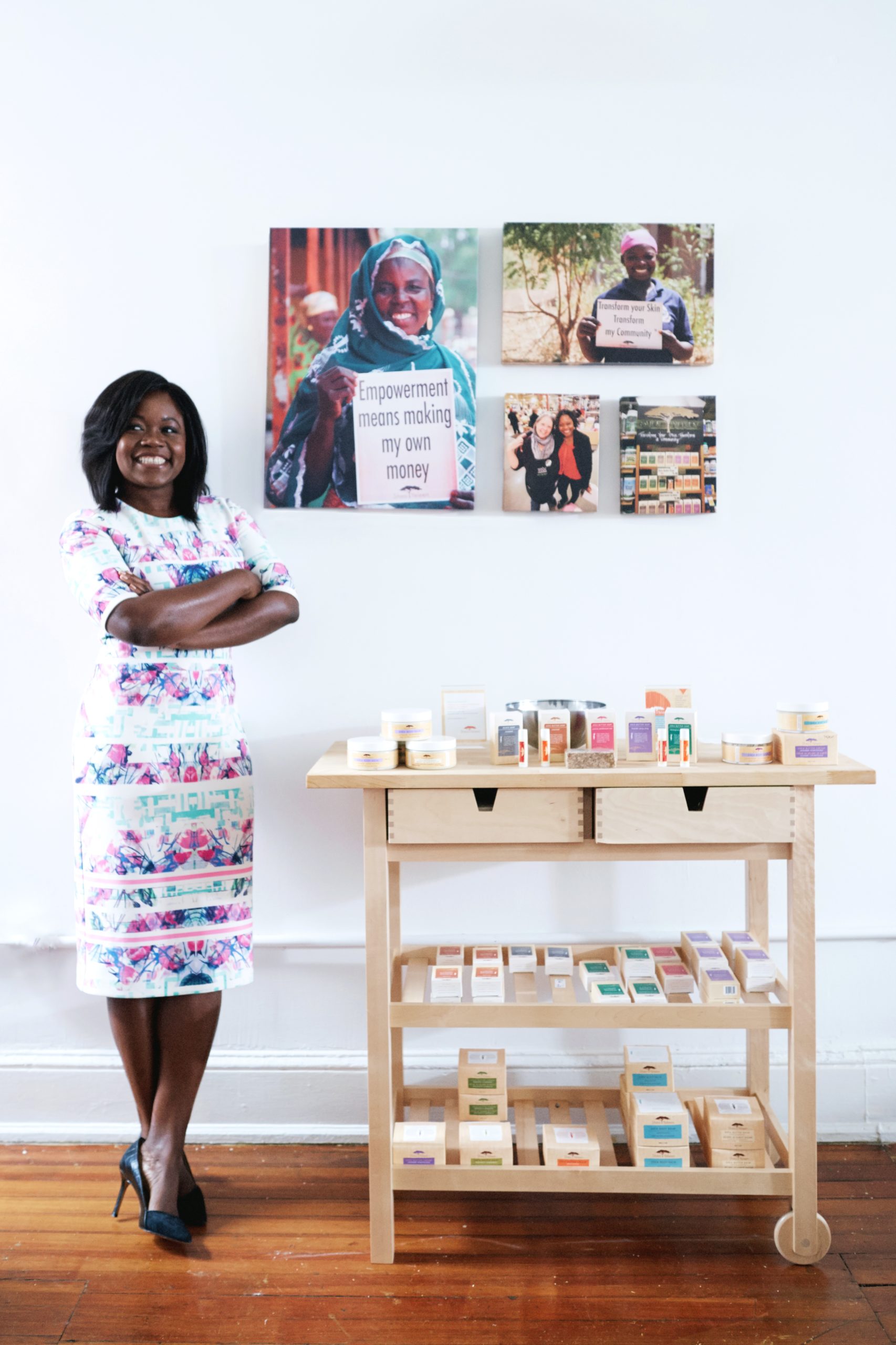
Rahama Wright
CEO Shea Yeleen & Social Entrepreneur
Shea Yeleen is a social impact company that creates living wage jobs for women-owned shea butter cooperatives in Ghana. Wright was appointed by U.S. Secretary of Commerce Penny Pritzker to the inaugural Presidential Advisory Council on Doing Business in Africa, and reappointed by Secretary Ross, to counsel on strategies to transform and improve commercial engagement between the U.S. and Africa.

